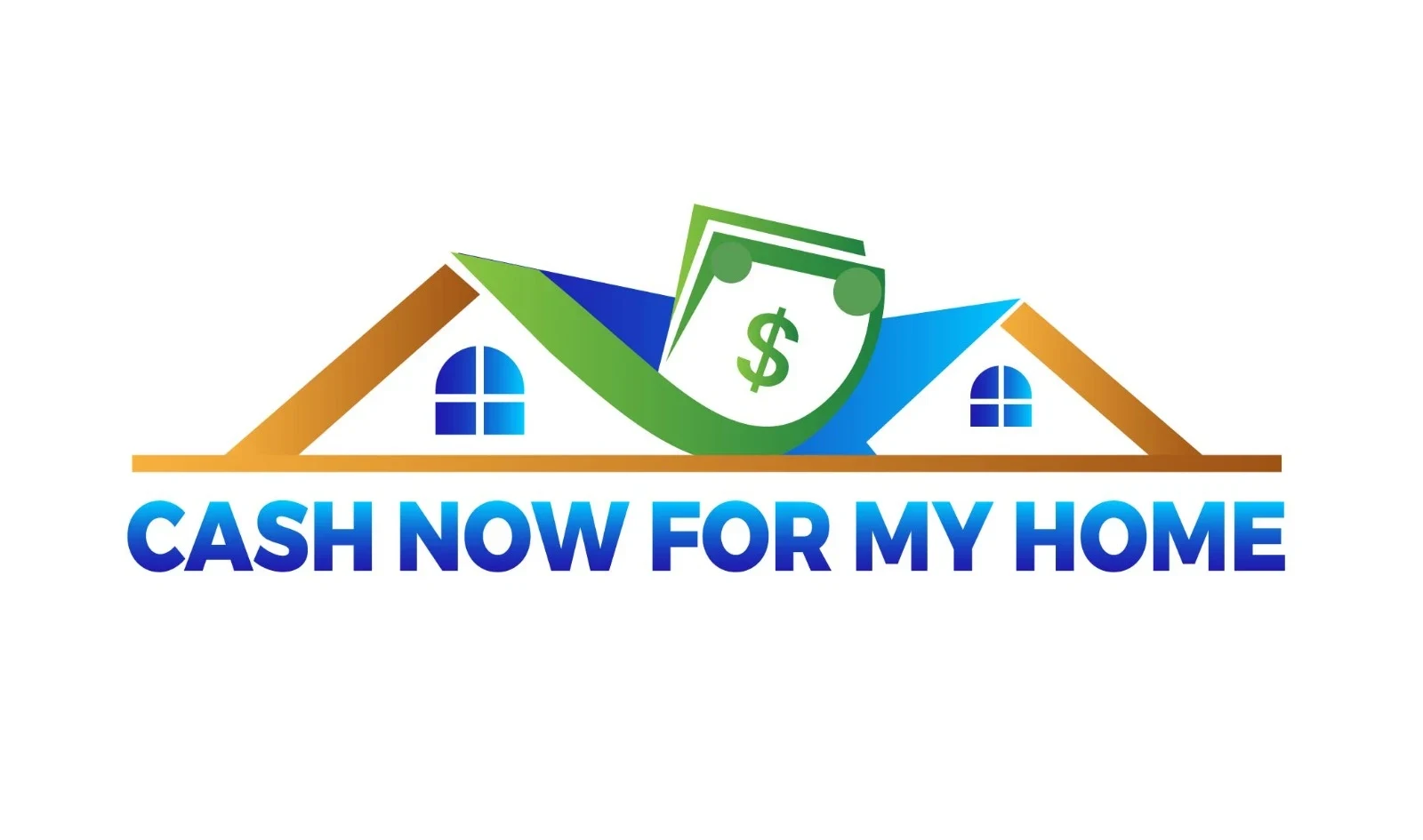Hey there, savvy home buyer! Thinking about diving into the world of mobile homes? Well, let’s talk financing options because, trust me, it’s not as dull as it sounds. In fact, understanding the ins and outs of mobile home financing can be a real game-changer.
Mobile Home Financing The Right Way
Now, you might be wondering what all this fuss is about. Why should you care about different loan options for mobile homes? Well, my friend, let me enlighten you. Mobile homes offer an affordable alternative to traditional housing, and knowing your financing choices can open up a whole new realm of possibilities.
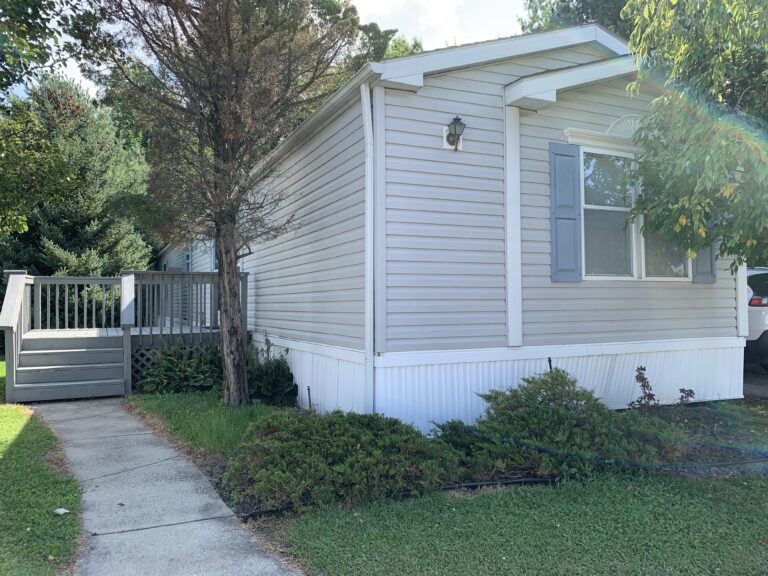
From manufactured housing to modular homes, there are loan options galore waiting for eager borrowers like yourself. And here’s the best part: exploring these choices allows you to find repayment terms that suit your needs and budget. Whether it’s payment assistance or finding lenders who specialize in mobile home loans, understanding your options puts you in the driver’s seat.
So buckle up (oops!) and get ready to navigate the exciting world of mobile home financing. We’re here to guide you through every twist and turn so that you can make an informed decision.
Exploring Different Types of Mobile Home Loans
Traditional Mortgage Loans for Mobile Homes
One common avenue is through traditional mortgage loans. These loans are similar to those used for site-built homes, but they are specifically tailored to the unique needs of mobile home buyers.
With traditional mortgage loans for mobile homes, buyers can enjoy several benefits. First and foremost, these loans often come with lower interest rates compared to other types of financing options. Borrowers have access to larger loan amounts and longer loan terms, allowing them to purchase a mobile home that fits their needs without straining their budget.
To apply for a traditional mortgage loan, buyers will need to go through a similar process as those applying for conventional loans. This includes providing financial documents such as income statements and credit history. It’s important to note that not all lenders offer traditional mortgage loans for mobile homes, so it’s essential to research different lenders who specialize in this type of financing.
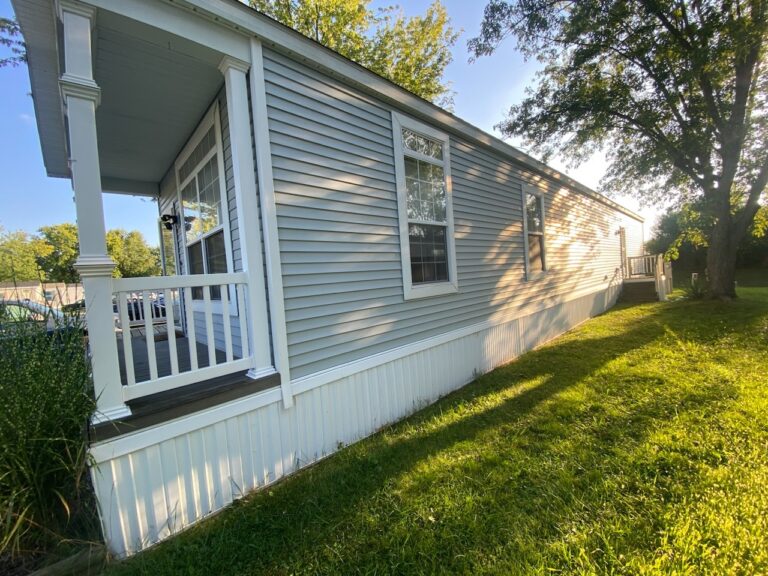
Chattel Loans Specifically Designed for Manufactured Homes
Another option available for mobile home buyers is chattel loans. These loans are specifically designed for manufactured homes and differ from traditional mortgage loans in a few key ways.
Chattel loans treat the mobile home as personal property rather than real estate. This means that the buyer does not own the land on which the home sits and instead leases or rents the land from a park or community. As a result, chattel loans typically have higher interest rates compared to traditional mortgage loans.
However, chattel loans offer some advantages that make them an attractive option for many buyers. For instance, they often have more flexible qualification requirements and shorter loan terms. Since these loans focus solely on the mobile home itself rather than the land underneath it, they can be an ideal choice if you plan on relocating your home in the future.
Comparison between Personal Property Loans and Real Estate Loans
When exploring mobile home financing options, it’s important to understand the difference between personal property loans and real estate loans.
Personal property loans, such as chattel loans, are secured by the mobile home itself. These loans are typically easier to obtain, have quicker approval processes, and require less documentation compared to real estate loans. However, they generally come with higher interest rates and shorter loan terms.
On the other hand, real estate loans treat the mobile home as part of the overall property. This means that buyers own both the home and the land on which it sits. Real estate loans offer lower interest rates and longer loan terms compared to personal property loans. They also provide more stability since you own both the home and land.
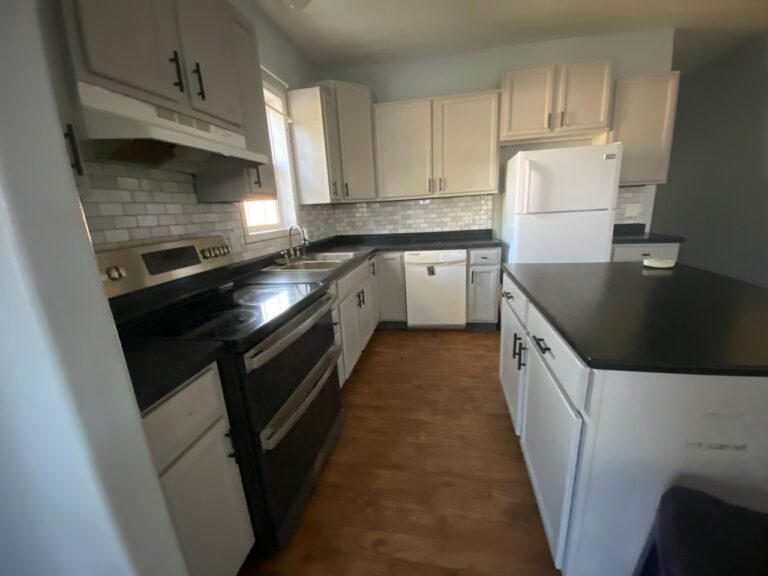
Steps to Finance a Mobile or Manufactured Home
Securing financing for a mobile or manufactured home purchase can seem like a daunting task, but breaking it down into manageable steps can make the process much more straightforward. Here are the key steps involved in financing your dream mobile home:
Check Your Credit Score: Before diving into the world of mobile home financing, it’s essential to know where you stand with your credit score. Lenders often consider credit scores when assessing loan eligibility and interest rates. Aim for a higher credit score to increase your chances of securing favorable loan terms.
Save for a Down Payment: Like traditional homes, mobile homes typically require a down payment. Saving up for this initial payment will not only demonstrate financial responsibility but also reduce the amount you need to borrow. The specific down payment requirements may vary depending on factors such as the type of manufactured home and lender policies.
Gather Documentation: To streamline the financing process, gather all necessary documentation beforehand. This may include proof of income, tax returns, bank statements, and identification documents. Having these ready will expedite your loan application and increase your chances of approval.
Shop Around for Lenders: Don’t settle for the first lender that comes along; instead, take the time to shop around and compare offers from different lenders. Each lender has its own terms and conditions, so exploring multiple options allows you to find the most suitable one for your needs.
Consider Loan Types: Several types of loans are available:
Chattel Loans: These loans are specifically designed for manufactured homes that are not permanently affixed to land.
FHA Loans: Backed by the Federal Housing Administration (FHA), these loans offer competitive interest rates and lower down payment requirements.
Conventional Loans: Traditional mortgage loans can be used to finance certain types of manufactured homes that meet specific criteria.
Evaluate Loan Terms: As you compare loan offers, carefully evaluate the terms and conditions. Pay attention to interest rates, repayment periods, and any additional fees or charges. Consider how each loan option aligns with your financial goals and choose the one that provides the most favorable terms.
Submit Your Application: Once you’ve selected a lender, it’s time to submit your loan application. Provide all required documentation promptly and accurately to avoid delays in the approval process.
Complete the Closing Process: If your loan application is approved, you’ll move on to the closing process. This involves signing legal documents and finalizing the purchase of your mobile home.
Remember, financing a mobile or manufactured home requires careful consideration of payment requirements, credit score, and documentation. Take your time to research lenders, explore various loan options, and ensure that you understand all aspects of the financing agreement before proceeding.
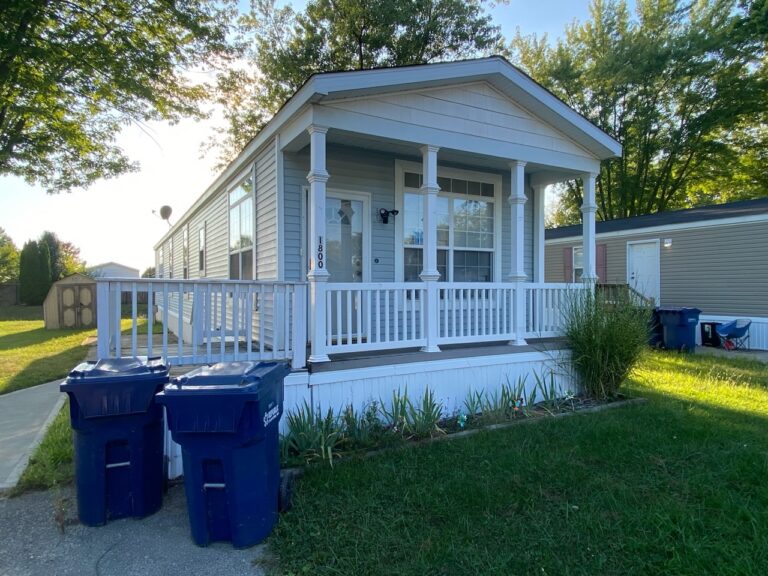
By following these steps and being diligent throughout the process, you can secure suitable financing for your mobile or manufactured home purchase and turn your homeownership dreams into reality.
Top Picks: Best Mobile Home Loan Options in 2023: Mobile Home Financing
If you’re in the market for a mobile home, finding the right financing option is crucial. To help you make an informed decision, we’ve compiled a list of the top-rated lenders offering competitive loan options for mobile homes in 2023. Each lender comes with its own set of features, interest rates, and eligibility criteria, so let’s dive in and explore your best choices.
Lender A
Lender A stands out as one of the best options for mobile home financing in 2023. With their attractive interest rates and flexible terms, they offer a compelling choice for buyers. Their streamlined application process makes it easy to apply and get approved quickly.
Key Features:
Competitive interest rates
Flexible repayment terms
Quick approval process
While Lender A offers some fantastic benefits, it’s important to consider both sides of the coin before making a decision.
Pros:
Competitive interest rates ensure affordability.
Flexible repayment terms accommodate various financial situations.
Quick approval process saves time and reduces stress.
Cons:
Eligibility criteria may be stricter compared to other lenders.
Limited availability in certain regions.
Lender B
For those seeking maximum flexibility in their mobile home financing, Lender B is an excellent choice. They offer a range of loan options tailored to meet individual needs. Whether you’re purchasing a new or used mobile home, Lender B has got you covered.
Key Features:
Wide range of loan options
Financing available for new and used mobile homes
Personalized customer service
Let’s take a closer look at the pros and cons of choosing Lender B:
Pros:
Diverse loan options provide flexibility.
Financing available for both new and used mobile homes expands your choices.
Personalized customer service ensures a smooth experience.
Cons:
Interest rates may be slightly higher compared to other lenders.
Eligibility criteria might require a stronger credit history.
Lender C
If you’re a first-time mobile home buyer, Lender C offers special programs and incentives that can make your dream of homeownership a reality. Their down payment assistance options and low-interest rates create an attractive package for those entering the market.
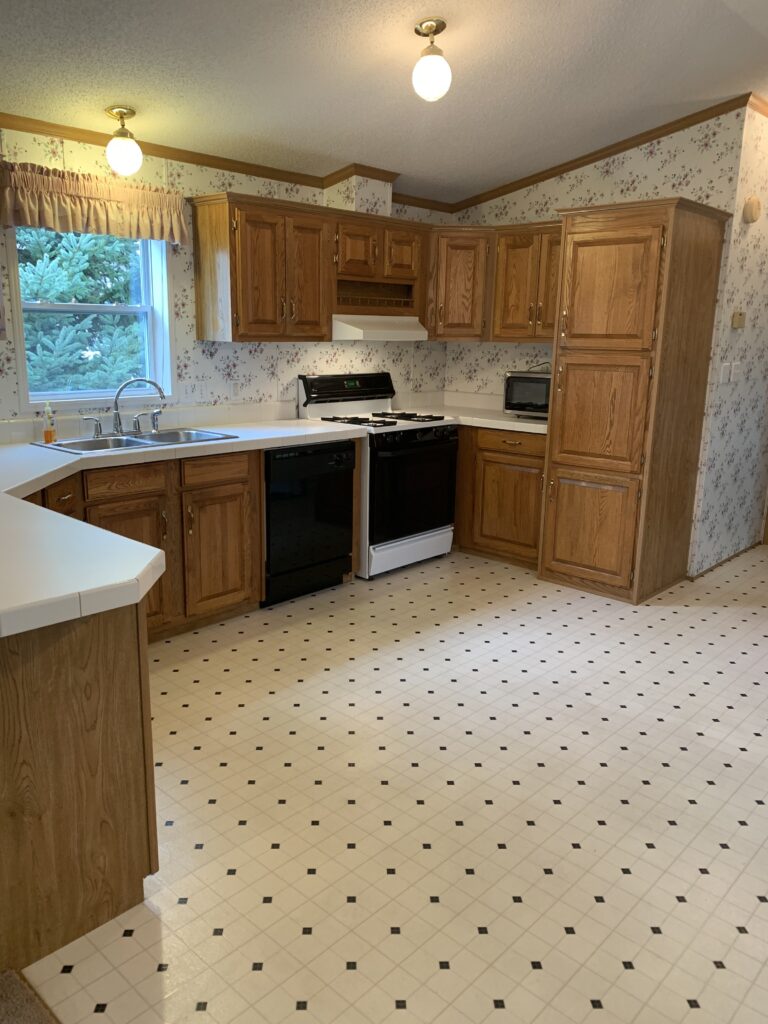
Key Features:
-
First-time buyer programs
-
Down payment assistance options
-
Low-interest rates
Let’s weigh the pros and cons of choosing Lender C:
Pros:
-
First-time buyer programs provide extra support and guidance.
-
Down payment assistance options help alleviate financial burden.
-
Low-interest rates make financing more affordable.
Cons:
-
Limited eligibility for experienced buyers.
-
Program availability may vary depending on location.
By exploring these top picks for mobile home loan options in 2023, you can find the right fit for your needs. Remember to consider the highlights, pros, cons, maximum benefits, and eligibility criteria offered by each lender to make an informed decision. Happy house hunting!
Factors to Consider and Ways to Finance a Factory-Made Home
There are several factors that buyers need to consider. These include location, age restrictions, park fees, and insurance costs. Exploring alternative financing methods such as personal savings or seller financing can provide flexibility for buyers.
Location Matters
One of the first things to consider when buying a factory-made home is its location. Different states may have varying regulations and requirements for these homes, so it’s important to research the specific rules in your desired area. Some locations may also have age restrictions on the homes allowed within certain communities. Understanding these limitations will help you find the right match for your needs.
Park Fees and Insurance Costs
In addition to the cost of the house itself, buyers should take into account park fees and insurance costs associated with living in a manufactured home community. Park fees cover amenities provided by the community such as maintenance, landscaping, and access to common areas. Insurance costs will vary depending on factors like location and coverage options.
Exploring Financing Options
- While traditional home loans are available for factory-made homes, there are other financing options worth considering:
-
Personal Savings: Utilizing personal savings can be an effective way to finance a factory-made home without taking on additional debt.
-
Seller Financing: Some sellers may offer financing options directly to buyers, allowing them to make payments over time instead of securing a loan from a bank.
-
Lease-to-Purchase Agreements: This option allows individuals who don’t qualify for traditional financing methods or prefer not to commit immediately to purchase a factory-made home after leasing it for some time.
- It’s important to carefully evaluate each financing method based on individual circumstances before making a decision.
Safety Standards and Permanent Foundation
Factory-made homes must meet safety standards set by the Department of Housing and Urban Development (HUD). These standards ensure that the homes are built to withstand transportation, provide adequate living space, and meet electrical, plumbing, and fire safety requirements. Some lenders may require factory-made homes to be placed on a permanent foundation for financing purposes.
You might also be interested in our article: Converting Mobile Home to Real Property: A Step-by-Step Guide
Average Cost and Alternative Companies: Mobile Home Financing
The average cost of a factory-made home can vary greatly depending on factors such as size, location, customization options, and additional features. While it’s essential to consider the cost of the house itself, buyers should also factor in expenses related to land purchase or rental fees.
There are numerous companies nationwide specializing in manufacturing factory-made homes. Researching different companies will help buyers find reputable manufacturers that offer quality products at competitive prices.
Comparison: FHA, USDA, VA Loans for Mobile Homes
Three government-backed loan programs stand out: FHA (Federal Housing Administration), USDA (United States Department of Agriculture), and VA (Veterans Affairs) loans. Each of these programs offers unique benefits tailored specifically for mobile homes. Let’s dive into the key differences between them.
Eligibility Requirements
To qualify for an FHA loan, buyers must meet certain criteria. These include a minimum credit score of 580 and a down payment of at least 3.5% of the purchase price. The mobile home must be classified as real estate and meet specific safety standards outlined by the FHA.
On the other hand, USDA loans are designed to assist low-income individuals in rural areas. To be eligible for this program, buyers must meet income limits set by the USDA and purchase a property located in an eligible rural area. The credit requirements are more flexible compared to FHA loans.
VA loans are exclusively available to active-duty military personnel, veterans, and their spouses. While there is no minimum credit score requirement set by the VA, lenders often have their own guidelines. One significant advantage of VA loans is that they do not require a down payment or private mortgage insurance (PMI).
Down Payment Options
FHA loans typically require a minimum down payment of 3.5% of the purchase price. For example, if you’re buying a mobile home worth $100,000, you would need to provide $3,500 as a down payment.
USDA loans offer even more favorable terms. Qualified buyers can secure financing without any money down.
As mentioned earlier, one of the most attractive features of VA loans is that they do not require any down payment at all.
Interest Rates
Interest rates play a crucial role in determining the overall cost of your loan. When comparing FHA, USDA, and VA loans, it’s essential to consider the interest rates associated with each program.
FHA loans typically have competitive interest rates that are influenced by market conditions and individual borrower factors such as credit score and down payment amount.
USDA loans offer fixed interest rates that are generally lower than those of conventional mortgages. These rates remain constant throughout the loan term, providing stability for borrowers.
VA loans also feature competitive interest rates. However, the specific rate offered will depend on various factors such as creditworthiness and market conditions.
Other Key Factors: Mobile Home Financing
In addition to eligibility requirements, down payment options, and interest rates, there are other key factors to consider when choosing between FHA, USDA, and VA loans for mobile homes:
-
Mortgage Insurance: FHA loans require borrowers to pay mortgage insurance premiums (MIP) throughout the loan term. USDA loans also have a similar requirement called guarantee fees. In contrast, VA loans do not require any form of mortgage insurance.
-
Loan Limits: Each loan program has specific limits on how much you can borrow. FHA loan limits vary by county, while USDA loan limits are based on income eligibility and property location. VA loans do not have strict borrowing limits but instead focus on affordability.
-
Property Requirements: FHA loans have stringent property requirements to ensure safety and habitability standards are met. USDA loans also have guidelines regarding property condition but mainly focus on rural eligibility criteria.
Understanding Chattel Mortgages and Loan Options for Mobile Homes
One alternative that buyers often consider is a chattel mortgage.
Defining Chattel Mortgages as a Type of Loan for Mobile Homes
Chattel mortgages are loans specifically designed for mobile homes that are not classified as real estate. Unlike traditional mortgages, which involve the transfer of ownership of both the land and the home, chattel mortgages only pertain to the movable property itself. This means that while you may own the mobile home, you do not own the land it sits on.
One significant advantage of opting for a chattel mortgage is flexibility. Since these loans are not tied to real estate, they can be easier to obtain compared to traditional mortgages. Chattel mortgages usually have shorter terms and higher interest rates due to their classification as personal property loans.
However, it’s important to consider some drawbacks associated with chattel mortgages. For instance, since you don’t own the land where your mobile home is located, you’ll likely have to pay rent or lease fees. Furthermore, because these loans are considered riskier by lenders, they typically come with higher interest rates than traditional mortgages.
Exploring Alternative Loan Options for Mobile Homes: Mobile Home Financing
While chattel mortgages may be suitable for some buyers, there are alternative loan options worth considering:
-
Personal Loans: If you’re looking for greater flexibility in terms of how you use your funds or if your credit score is not ideal for securing a traditional mortgage or chattel loan, a personal loan could be an option. These loans can be used towards purchasing a mobile home and may offer more favorable interest rates depending on your creditworthiness.
-
Home Equity Loans: If you already own a property with equity built up in it, you could explore the possibility of taking out a home equity loan to finance your mobile home purchase. This type of loan allows you to borrow against the value of your existing property and can offer competitive interest rates.
-
Guild Mortgage: Another option to consider is applying for a mortgage with Guild Mortgage, one of the leading lenders specializing in manufactured homes. They offer various loan programs tailored specifically for mobile homes, including both chattel mortgages and traditional mortgages.
Making Informed Decisions on Mobile Home Financing
Congratulations! You’ve now gained valuable insights into the various aspects of mobile home financing. Armed with this knowledge, you are well-equipped to make informed decisions. Remember, purchasing a mobile home is not just a financial investment; it’s an investment in your future and the lifestyle you desire.
Now that you have a clear understanding of different types of mobile home loans, steps to finance a mobile or manufactured home, top loan options available in 2023, factors to consider when financing a factory-made home, and even chattel mortgages and loan options for mobile homes, you can confidently navigate the world of mobile home financing.
Mobile Home Financing: Conclusion
So go ahead and take the next step towards turning your dreams into reality. Explore the various financing options available to you, compare their terms and conditions, and choose the one that best suits your needs. Whether it’s an FHA loan, USDA loan, VA loan, or another option altogether – remember that the power is in your hands to secure affordable and suitable financing for your new mobile home.
FAQs and Tips for Mobile Home Financing
Can I get a mortgage for a used mobile home?
Yes! Many lenders offer mortgages for used mobile homes. However, keep in mind that eligibility criteria may vary depending on factors such as the age of the home and its condition. It’s essential to research lenders who specialize in providing loans for used mobile homes.
What credit score do I need to qualify for a mobile home loan?
Credit score requirements can vary among lenders. While some may accept lower credit scores (typically around 580), others may require higher scores (around 620 or above). It’s crucial to check with different lenders to find out their specific credit score requirements.
Can I finance land along with my mobile home purchase?
Yes! If you’re looking to purchase both land and a mobile home, some lenders offer loans that include financing for both. This can simplify the process and provide you with a comprehensive loan to cover all aspects of your purchase.
How long does it take to get approved for a mobile home loan?
The time it takes to get approved for a mobile home loan can vary depending on several factors, including the lender’s process and the completeness of your application. Typically, it can take anywhere from a few days to several weeks to receive approval.
Are there any grants or assistance programs available for mobile home buyers?
Yes! There are various grants and assistance programs available for mobile home buyers, particularly for those who meet specific income requirements or are purchasing homes in designated rural areas. Research local and national programs to see if you qualify for any financial assistance options.
You might also be interested in our articles:
